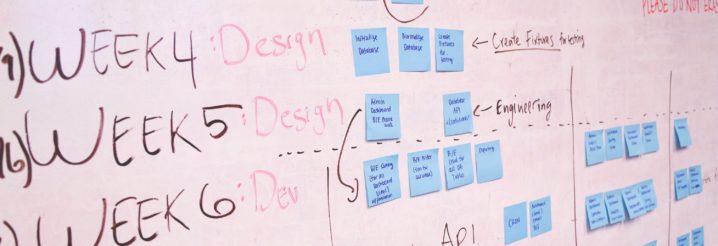Life can feel like an endless succession of tedious tasks we struggle to complete, and we may cross everything off our to-do lists, but it can still feel like we aren’t achieving what we really want.
Becoming more productive is about doing work that matters so your measurable output increases. Completing two tasks that move a project or goal further forward is going to produce far better long-term results than completing a hundred tasks that have no impact on any of your important projects or goals.
What can increase your productivity is to stop thinking in terms of tasks and to-dos you need to complete — instead, think of the outcomes you want to achieve. Tasks and to-dos may be the building blocks of work and productivity, but an outcome is more than a blueprint — it’s the most nutrient-rich version of a goal.
Write outcomes, not to-dos
A 2017 LinkedIn Survey found that 63% of professionals kept daily to-do lists — but only 11% actually accomplished everything on the list.
The problem isn’t that we write lists of the things we want to get done. It’s that we write down the to-dos we want to complete when we should be writing down the outcomes we want to achieve.
This is the key difference in outcome thinking. when we lose sight of the end state we want to reach: we lose the meaning and context for the actions we take to get there. The key to better productivity is to focus on the outcome you want, not the tasks that will get you there.
Eat the big frog first
You often see people who appear to be busy all day long but seem to accomplish very little. This is almost always because they are busy working on tasks that are of low value while they are procrastinating on the one or two activities that could make a real difference to their companies and to their careers.
The most valuable tasks you can do each day are often the hardest and most complex, but the payoff and rewards for completing them can be tremendous.
Begin each day with a simple plan
We all have a good mix of easy routine and hard project work to complete each day. Difficulties start when you are not clear about what work is important. Prioritizing your work is a big part of becoming more productive. This is why beginning the day with a plan based on what current projects are important is vital. However, the routine work can very easily take over the day if you are not careful.
Write it down
After stating your desired outcome at the outset, you write it down. Whether it’s the overall company goal, a quarterly target, or even the result of a single meeting, you clearly articulate and record the end state you want to reach. We write it down for reference and accountability.
Be an owner
It means taking responsibility for our own productivity and how we spend our time. Outcome thinking demands the same ownership mindset, empowering each of us to imagine the end state and draw on our creativity to decide for ourselves how best to get there.
The Daily Routine
Start your morning imagining what you want to have accomplished by the end of the day, visualize where you’ll be, what that will feel like. Write it down. Now you’re ready to design your day around achieving a sense of productivity and completion far more gratifying than crossing to-dos off a list.
Final Thoughts
If you are serious about becoming more productive, focus less on your tasks and more on what it is you are trying to achieve. The goal, the completed project and the outcome you desire are what you are looking for, not completing ten tasks so you feel like you have accomplished something. As Jim Rohn said, “Don’t mistake movement for achievement. It’s easy to get faked out by being busy. The question is: Busy doing what?”


